The People of India
This post is devoted to the description of "Indianness" : so to say, ingredients of character common to Indians.
This text is strictly subjective, based on and limited purely to our experience. It's important to note right away that:
- We're mere humans shaped by a particular cultural environment. The things peculiar to us aren't necessarily noteworthy to others.
- Every person is unique. The stated impressions shouldn't be related to every person or every possible situation.
- India 🇮🇳 is a very large and diverse country. It includes huge populous cities and small villages; places crowded with tourists and the ones rarely visited by foreigners; various sociocultural environments.
Hence, this description recounts only the most general, typical features that we encountered during our trip across India. And also those occasionally met characteristics that can be kept in mind during the country's visit.
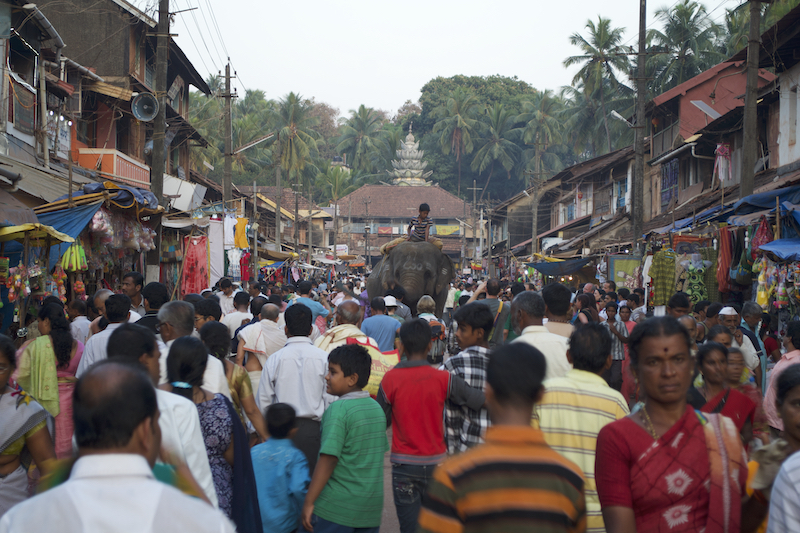
Anticipation
Before going to India I had read a lot of reviews and tips about this country. I've also had quite a strong knowledge of its history and culture, due to my deep interest in yoga 🕉️ as a practice and philosophy.
Well, the time has come to proclaim with full certainty, that no good article (even a detailed and very accurate one), no TV program, and no friend's story cannot portray the reality of people's lives in another country. Rephrasing the saying, it is better to spend one day in India than to listen, watch, and read about it for a whole year.
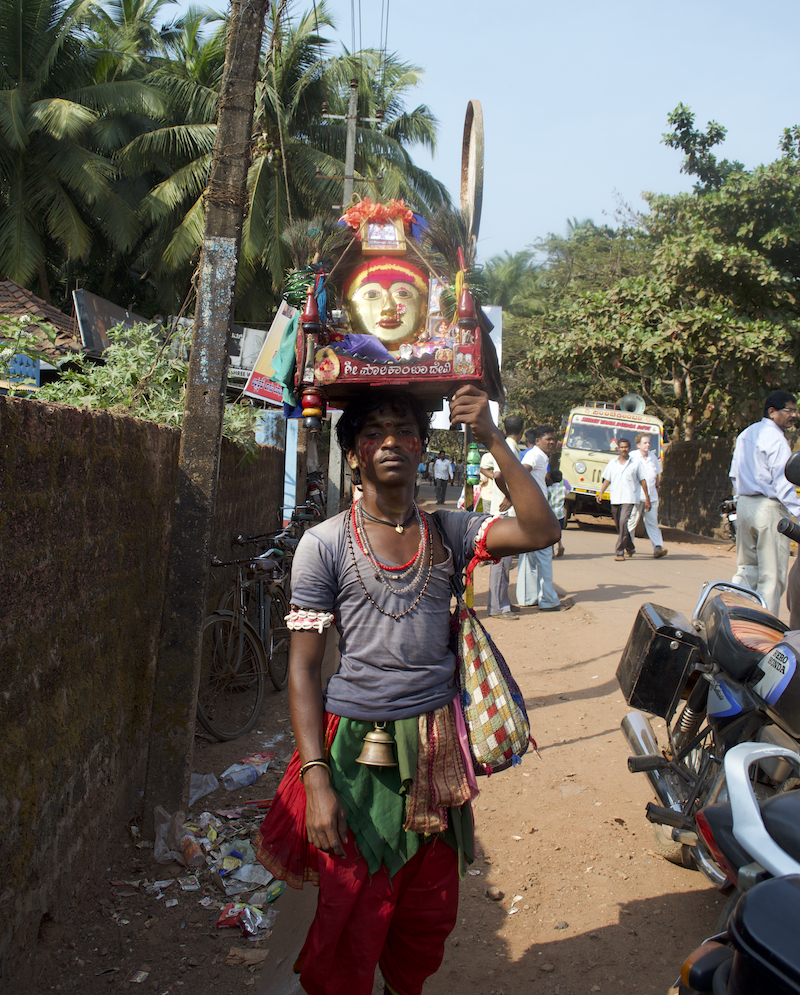
For instance, on our arrival at the airport, we were not met by the expected shouting crowds reaching for our hands, nor by anyone obsessively offering the goods. But, at the same time, there were not-expected long and attentive stares from local men, which was extremely stressful at first. More on this in the following section.

⭐ Wanna Be a Star ⭐ ?!
There's a simple solution: go to the non-touristy parts of India, as we did!
It's almost inevitable to get plenty of attention in areas rarely visited by foreigners. For instance, when we were buying something or asking directions somewhere deep in India, everyone within 50 meters would pause their actions, turn their heads and stare at us. Then – slowly but steadily – people would come closer, gathering around us.
Once, there was a remarkable kid of about eight years old. He saw us seated, surrounded by locals, treated to chai (Indian tea). The boy's eyes grew wider, his whole body rushed involuntarily towards us: the strange objects. We all laughed out loud when his spontaneous move was finished only with his head getting 10 centimeters close to one of the us-strangers face. As if he met an eye-catching alien 👽 🤩
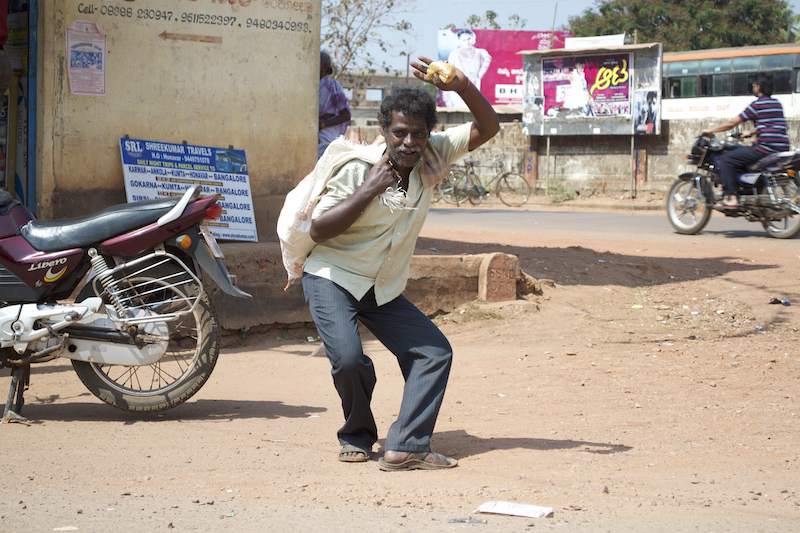
I Need Help
This phrase turned out to act as a magic spell in India. For instance, even in busy Pune, it miraculously changed a captious traffic policeman 👮♂️ behavior. As soon as "we need help" was pronounced, his stubbornness was dropped, and he started eagerly doing the things we had asked for 🚓
Even if you do not articulate this phrase, it still acts magically. For example, if you're staying on a wayside replacing a motorcycle's plug, be sure many won't pass by, eager to help and rescue. It wouldn't matter if they would be capable of helping in the situation 🆘
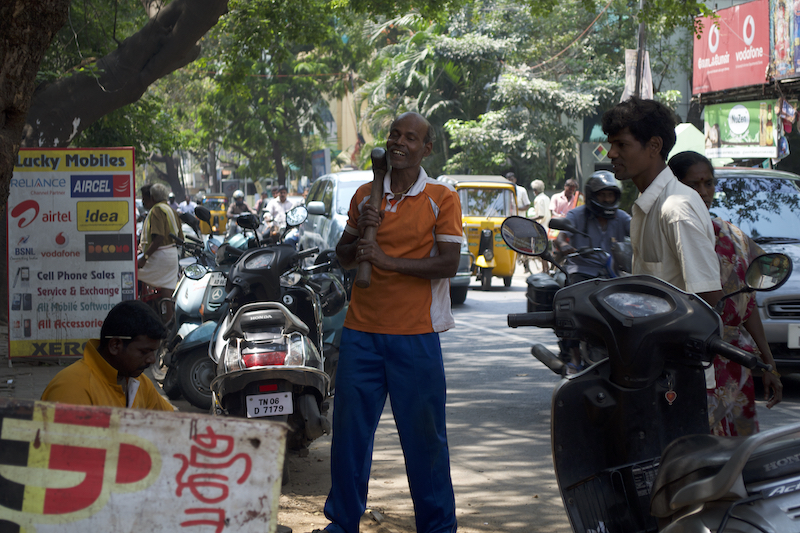
A Bazaar the Size of a Country
At first, we were quite discouraged by the desire of many (not all!) of the locals to take an advantage of dewy-eyed foreigners. Sometimes, this desire went to extremes, for instance, asking double price for the goods and services, or not sticking to an already agreed cost.
Once, the late road had caught us in a distant town with few small hotels. We chose the one with the promised shower and hot water. A bit later we discovered there wasn't even a second tap for hot water (later we learned this is not rare in India). Moreover, we were asked to pay extra for bringing a bucket of heated water…
Well, we've been laughing so loudly, that we've got our super-bucket for free in no time.
Hence, do not let your guard down. Get to know the prices in advance (f.i., from the locals nearby). Note, that on packaged products, it's common to print the price. Checking in at small hotels, it's better to ask for a printed price list first or let the receptionist show the available rooms naming the prices. Though, in particular, the latter approach didn't work out for us in Jaipur. The receptionist vividly changed the prices of rooms as we went along. The prices of the rooms we expressed liking to rapidly moved up 💰
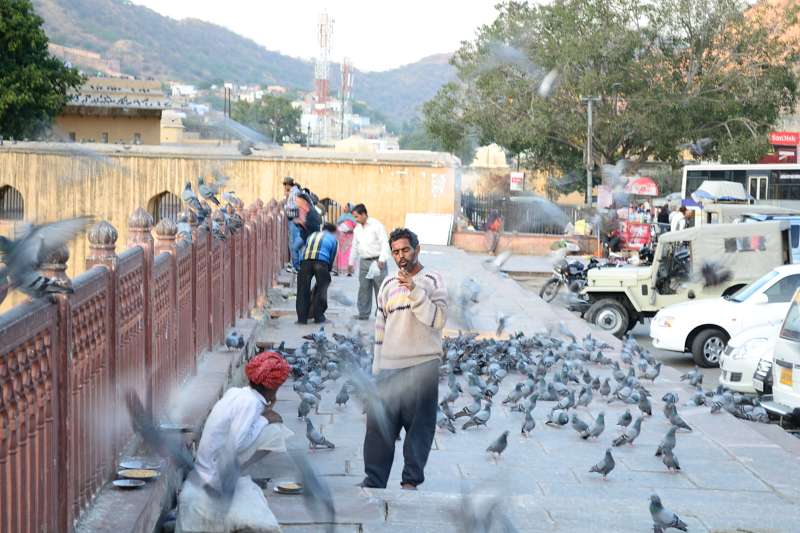
And Yet, It Wasn't Too Bad
Yet in that same Jaipur, which was remembered by us overall as a city of swindlers, I lost a wallet. The wallet was found soon, with all the money, unexpectedly prettifying our stay in the city 👛
[A nice small talk near Jal Mahal prettified it too, thanks!]
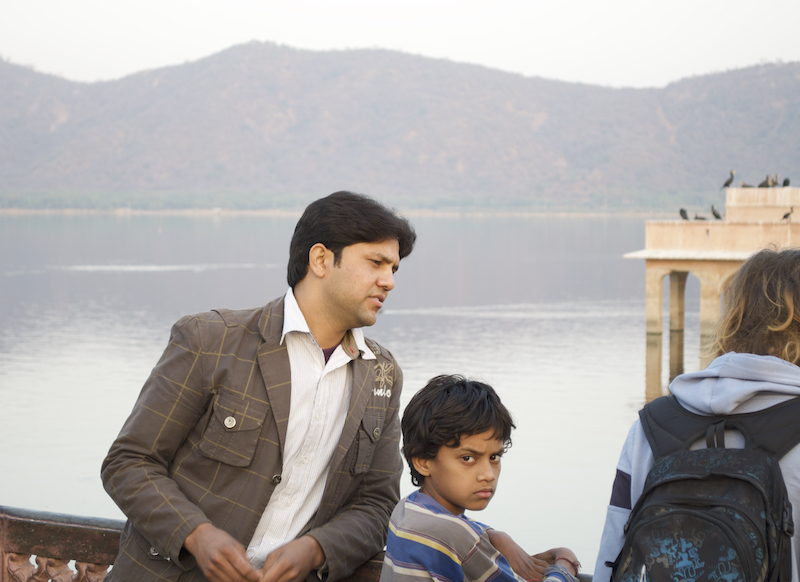
An Oversight
The mentality of a nation can be seen in everything. In the traffic, too. It took us a while to discern the causes of a madness on the roads (we've seen way too many lorries in roadside ditches and participated in way too many accidents). Eventually, we've settled with the following causes:
- Not thinking through the consequences.
- Tunnel vision.
- Self-perception of being the main and only object on the road.
Well, we suspect that the huge number of the educational institutions we've seen in India should boost the number of citizens thinking over the consequences of their actions. Time will tell.
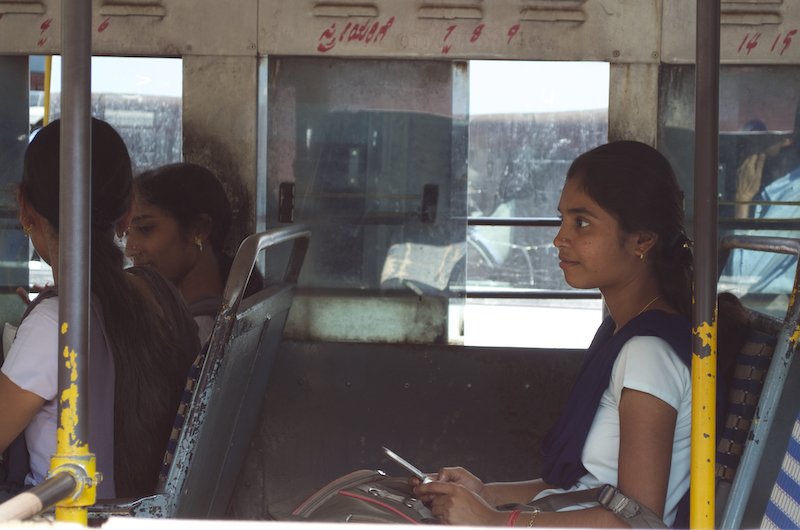
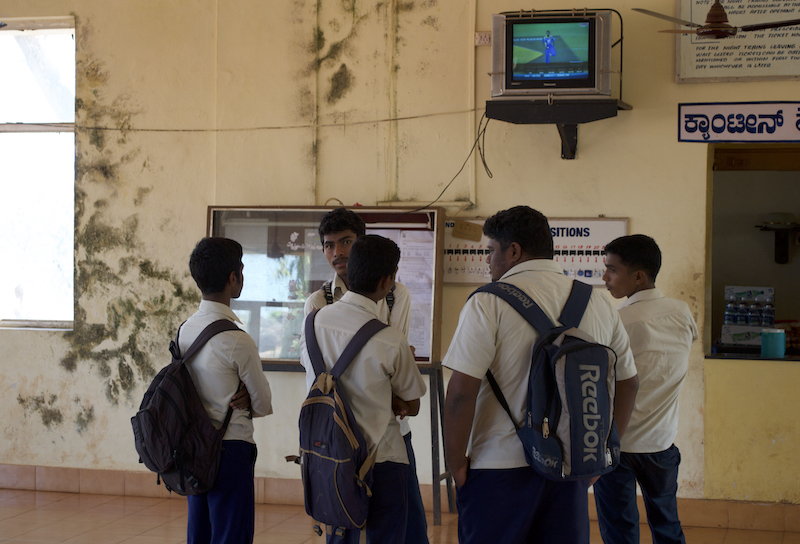
Everything's Relative
Being in another country helps to distinguish oversights of the own mentality too. Indians on average are calmer, more kind, and happier than people in our native country. It took us some time to adapt to another social norm of communication, which we found to be more comfortable than the one we were used to.

If a small collision happens on a road – which is frequent in India – no one yells or swears. The person at fault says: "I'm sorry," and all the participants peacefully drive away. If a road police is present during the incident, they act more like babysitters 🧚. Their task is to say "That's a no-no" to the guilty, ask if anyone has any scratches, and that's it 🖖
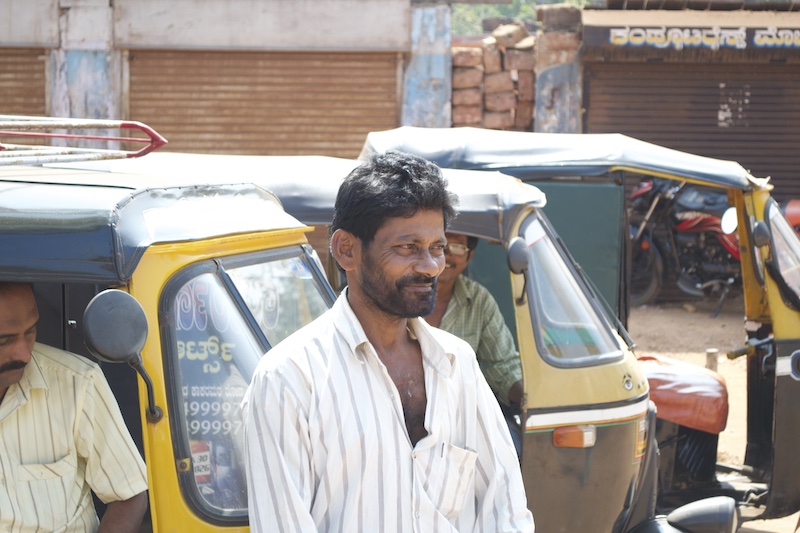
A Bit Of Stress
The obtrusiveness of many tuk-tukers and bazaar sellers is annoying. Tactless behavior can be encountered in other places too. Perhaps, this could be explained by either a lack of empathy or differences in social conventions. For instance, it's not uncommon for a stranger to stay close and peek into your wallet while you're paying for the goods. Or, we felt awkward once in a restaurant, with the waiters grouping around and staring at us while we were eating (might be it was meant to be pleasing, dunno.)
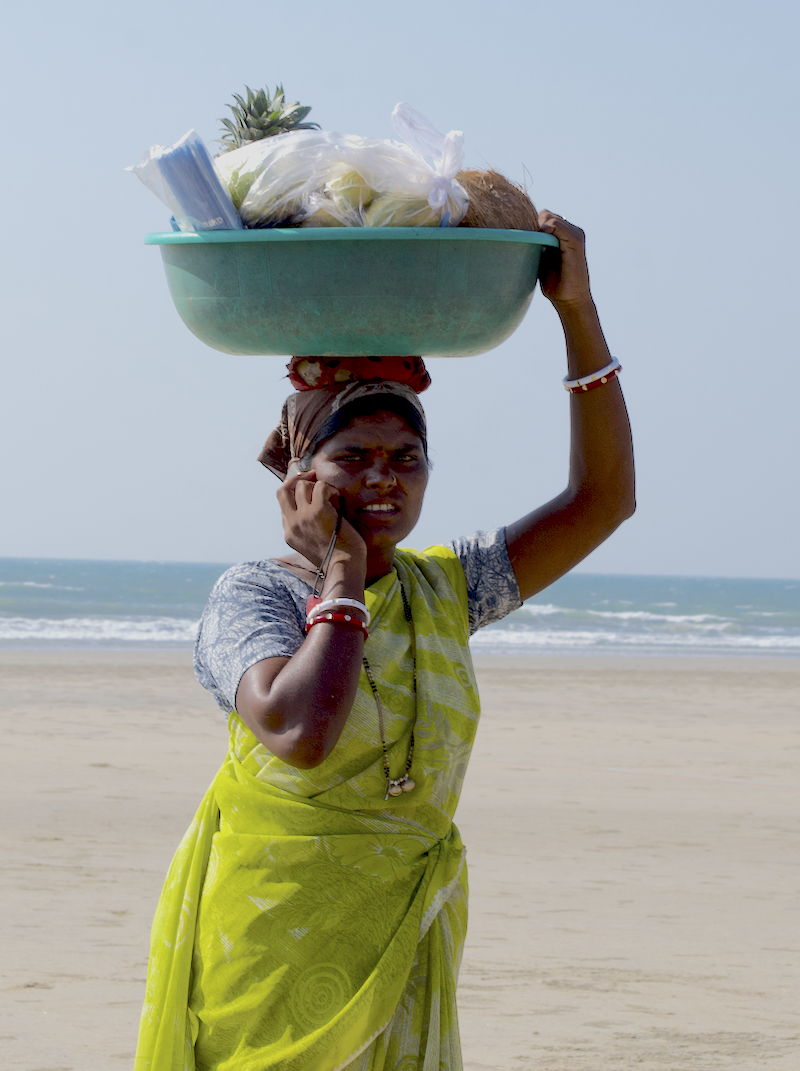
A Bit Of Amusement
India is full of curious little things that still look rather odd to us. For instance, we met absolutely no fear of touching, hugging, holding hands, and showing emotions of love and affection between men. This is so untypical for the society we grew up in. It is also strange to see little boys to be painted and dressed up by their mothers as if they were girls (by the standards we're used to). When these boys grow up, they arrange their hair in such a manner that not every girl could outperform it 🙃

Conclusion
There's one conclusion: words are but wind, but seeing is believing. In India we have found a whole new world, a parallel universe, in which, it seems, the previously studied laws of physics do not work.
And that we take as a great opportunity to change one's lifestyle and worldview significantly, by adjusting to an unfamiliar type of being 🌏
